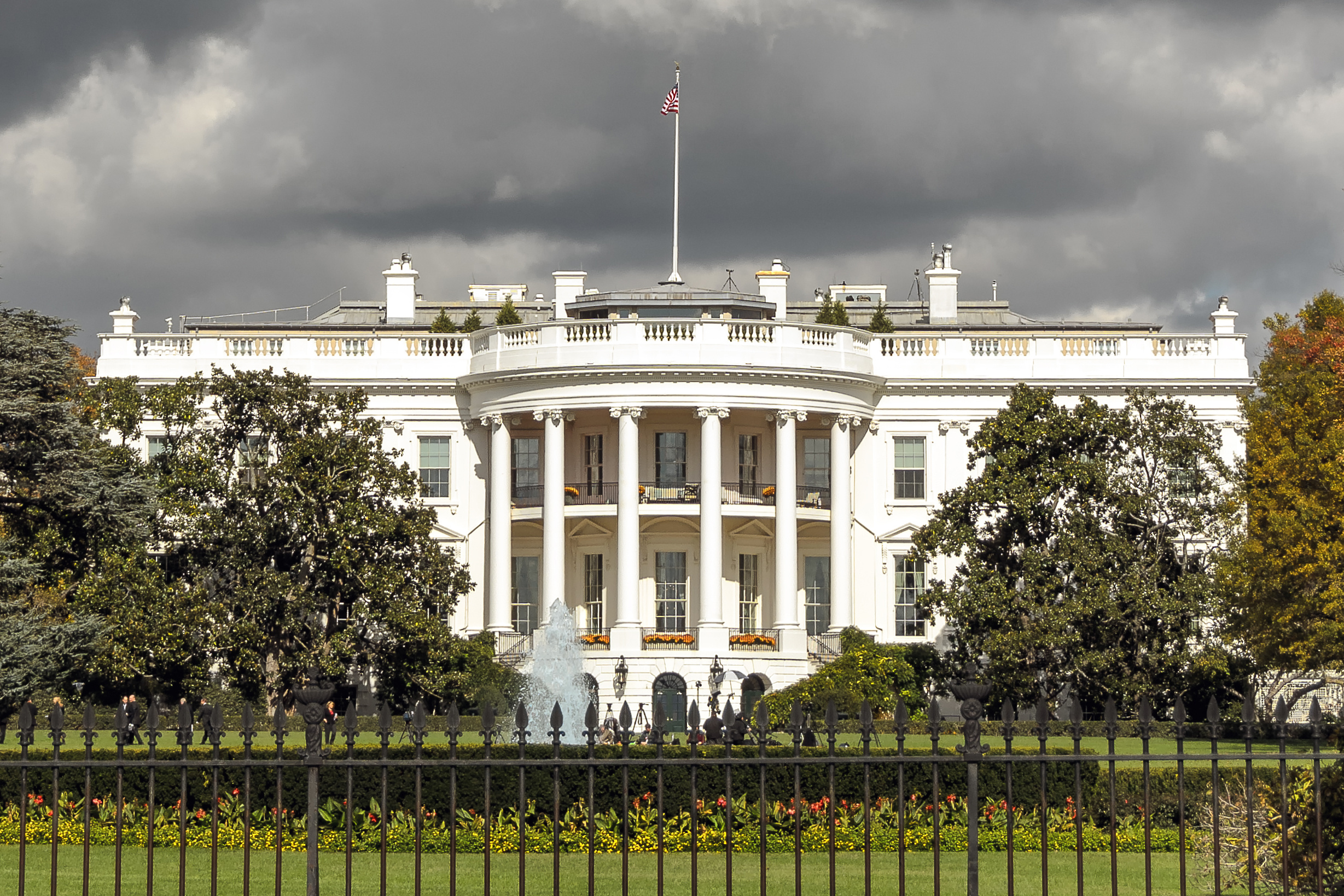Posts tagged Barack Obama

Trump and Harris, with starkly different records on labor issues, are both courting union voters
September 5, 2024 // By comparison, two days after taking office in 2021, Biden issued an executive order that established masking guidelines, and his administration made health and safety protocols on the job during the rest of the COVID-19 pandemic a high priority. Compared with the inaction by the Trump administration during the COVID-19 pandemic, the Biden administration has been more active in proposing health and safety measures. For example, in July 2024 it proposed rules designed to protect some 36 million workers from health risks associated with extreme heat. After a period for written comments, public hearings will be held on the bill. When Trump tried cutting OSHA funding for 2018 by approximately US$10 million, Congress blocked his efforts. The Biden administration is seeking a 3.7% increase in OSHA’s budget for the 2025 fiscal year.
Union members aren’t just voting on labor this year
August 27, 2024 // She believes Harris can deliver for her and fellow union members, calling the Democratic nominee a “breath of fresh air” for whom she’s canvassing alongside UNITE HERE colleagues. Gangwer, meanwhile, said he has struggled to grapple with recent inflation. He pushed off “must-do’s” on his home, like a partial roof replacement, because it’s too expensive. His co-workers have become more willing to vote for Republicans in recent years, he said, citing the party’s commitments to cut taxes and an emphasis on law and order.
Walz Twists Some Labor Claims
August 19, 2024 // Delivering remarks at a labor union conference in California, Minnesota Gov. Tim Walz stretched the facts with several labor-related claims.

Op-Ed: Union leaders need Trump more than he needs them
July 18, 2024 // Collective bargaining is a right and workers should be supported in it when that represents an honest expression of their collective will. It’s part of the First Amendment’s right to “peaceably” assemble. However, that’s not the same thing as accepting the claims of leaders like O’Brien that they need more leverage to pressure workers into joining unions for their own good. Workers can make their own choices. O’Brien spoke to the GOP convention in part because many of his own members are already Trump supporters and he needed to demonstrate to his folks that he’s willing to at least talk. Trump has thus far avoided catering to union leaders and has instead talked directly to the workers. It has worked for him too, getting the Teamsters boss to sing his praises. In short, O’Brien needs Trump more than Trump needs him.
Biden, Trump battle for blue-collar voters as steel merger looms
June 30, 2024 // But Rudy Sanetta, a maintenance worker at US Steel, prefers Trump on the economy and because of his stance on gun rights. "I like him for his resistance to the politicians," Sanetta said of Trump. "The other guy, I have no confidence." Working class voters "are the most pivotal because they're the ones who have actually demonstrated that they're willing to select either Trump or Biden," said Jonathan Cervas, a political scientist at Carnegie Mellon University in Pittsburgh.
Guest column: Union democracy? Not so much
May 21, 2024 // The AFL-CIO Philadelphia Council announced GET-UP may be Philadelphia’s largest private sector union. Nonetheless, GET-UP did not secure — as some overzealous headlines suggest — an “overwhelming majority.” Yes, the 1,807-to-97 vote to unionize was undoubtedly one-sided. However, the National Labor Relations Board (NLRB) reported 4,003 eligible voters, meaning only 45 percent of the total workforce supported unionization. Other reports suggest a lower denominator of 3,700 voters. Even then, that’s only 48 percent — clearly less than “the majority of the employees in a unit” seemingly described in the National Labor Relations Act. Yet, due to federal court decisions that strayed from the statutory text long ago, UAW only needed a simple majority
Michigan’s largest unions have seen plummeting membership over the past decade
April 18, 2024 // Analysis Michigan’s largest unions have seen plummeting membership over the past decade Jobs and incomes are up, workplace injuries are down By Jarrett Skorup | April 16, 2024Share on FacebookShare on X Photo by Kateryna Babaieva on Pexels In recent years, most of Michigan’s largest labor unions saw massive declines in membership, despite significant job growth in most industries. The reason? A decade with right-to-work law, which gave workers the ability to choose whether to join a union, as a member or through a fee, or not. The reports many labor unions are required to file with the federal government reveal the state of labor union membership, as do reports from the Michigan Civil Service Commission. Every one of Michigan’s 15 largest unions or so has seen a decline, whether in state government, schools, local government, or private industries such as construction or food service. But the declines are uneven. A variety of AFSCME associations, representing mostly state and local government workers, have seen a loss of more than half their members. The SEIU, which mostly represents workers in health care and local government, is down nearly 70%. Despite job gains in the auto sector over the past decade and a highly publicized strike last year, the UAW branches in Michigan have lost 16,000 members over the past decade. Other private sector unions have seen fewer losses. These include the United Food and Commercial Workers (-8.7%), Michigan Regional Council of Carpenters (-6.8%), the Operating Engineers (-2.5%) and Michigan Nurses Association (-3.7%). Losses in the public sector are much more pronounced than those in the private sector. The Michigan Education Association has now lost more than 38,000 members, or one-third, since the right-to-work law went into effect in 2013. The American Federation of Teachers branch, the bulk of which is in the Detroit Federation of Teachers, is down more than 25%. The Michigan public school system added 27,000 employees since 2012, but its largest employee unions have lost a combined 45,000 members. The total number of public sector union members in Michigan has dropped by 80,000 since the right-to-work law was passed. Unions representing state of Michigan employees are down by more than one-third. That may soon change. The Democratic-led Michigan Legislature repealed the state’s right-to-work law in 2023. The UAW and other unions representing workers for private employers can now require them to rejoin or pay fees. A 2018 ruling from the U.S. Supreme Court means that public sector employees such as schoolteachers still have the right to decline paying or joining a union. Repealing the law is expected to boost union membership and financial support for the Democratic Party. In fighting in 2012 against a law allowing workers to opt out, SEIU Healthcare Michigan President Marge Faville said unions needed the forced funds to “make sure Democrats get [elected].” Just before legislators voted to enact a right-to-work law, a local Michigan Education Association leader sent an email out on a public server to tell other public school employees that “[emergency management] is the future in Michigan with a Republican governor and Legislature” and union members need to “[get] everyone we know to vote for Democrats.”

Starbucks proxy war shows Big Labor’s new tactic
February 23, 2024 // Crucially, the new SEC rule allows the SOC to push for huge changes to the Starbucks board with comparatively little skin in the game. Starbucks has a market capitalization of $105 billion. The SOC owns 161 shares of Starbucks, a stake worth approximately $16,000. Thanks to the universal proxy rule, the SOC can use Starbucks’s own proxy materials to promote its hostile takeover attempt without bearing the costs of its own solicitation. The Starbucks proxy fight is one part of SOC’s broader scheme to impose Big Labor’s agenda on every publicly traded American company. The SOC’s coalition includes some of the most militant and disruptive unions in the country: the Service Employees International Union, Communications Workers of America, and the United Farmworkers of America. These unions regularly engage in strikes, protests, boycotts, litigation, and other tactics to bend workers and employers alike to their will.
Teamsters donate $45,000 to RNC, records show
February 22, 2024 // The RNC denied receiving the donation in a statement to The Hill. The Teamsters union has not endorsed any presidential candidate for 2024 and has continued to donate hundreds of thousands of dollars to Democratic causes in recent months, according to FEC filings, but the RNC donation helps buoy an organization that has struggled to fundraise in the 2024 cycle.
Some Workers Try to Free Themselves from Unionization, Biden Officials Try to Dragoon More In
January 5, 2024 // If the union loses the election, it often files an “unfair labor practice” charge against the company, seeking to invalidate the election. It used to be that after such a charge (assuming that an NLRB administrative law judge found it credible, which was usually the case), the remedy would be to order a new election. But now, the NLRB is making the remedy an order that the union has “won” and that the company must bargain with it. (Compulsory bargaining is another concept that’s contrary to the freedom that common law protected.) That was the ruling in I.N.S.A, Inc. This is “administrative law” at its worst. Under the Constitution, Congress, not unelected bureaucrats, is supposed to make the laws. But Biden’s pro-union appointments to the NLRB are determined to make the law under the guise of “interpreting” the NLRA. This ruling will lead to more compulsory unionism.
